Disclaimer: The following post contains major spoilers from the show.
Netflix’s latest drama miniseries, The Queen’s Gambit, is easily one of the most gripping shows of this year, that accurately captures the excitement of chess and the struggles of addiction, while giving us a relatable, albeit flawed, feminist icon.
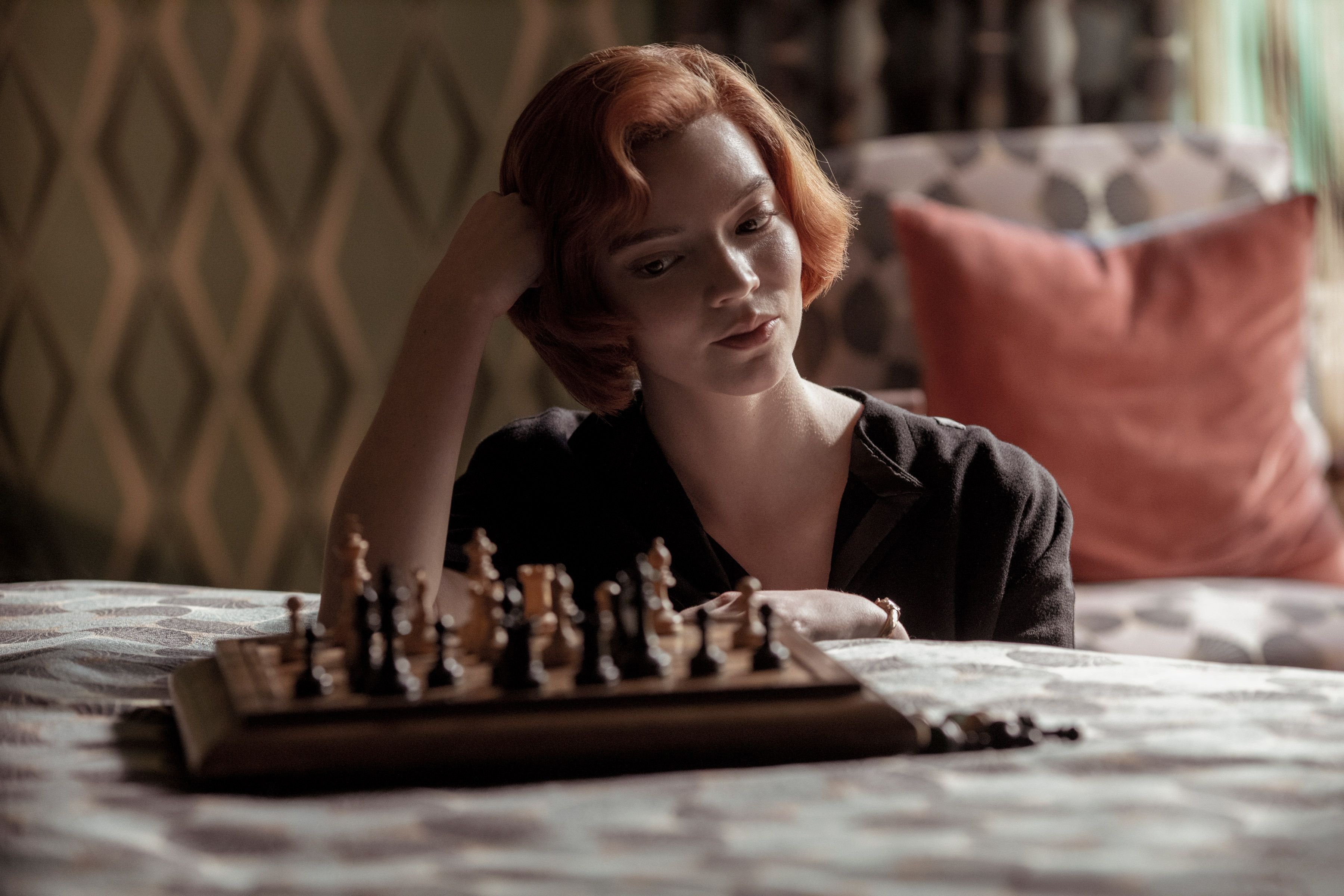
Set in the 1950s and 1960s, and based on Walter Tevis’s 1983 novel of the same name, it stars Anya Taylor-Joy as Beth Harmon, a chess prodigy battling addiction, who goes on to become the World Champion at the age of 22.
Here are some of the best moments from the show:
1. When the laconic Mr. Shaibel finally comments on Beth’s chess-playing ability.
It’s Beth’s repeated requests that convince Mr. Shaibel, the janitor of her orphanage, to teach her chess. However, he is a strict and taciturn teacher, who demands Beth’s absolute patience and attention when the two play.
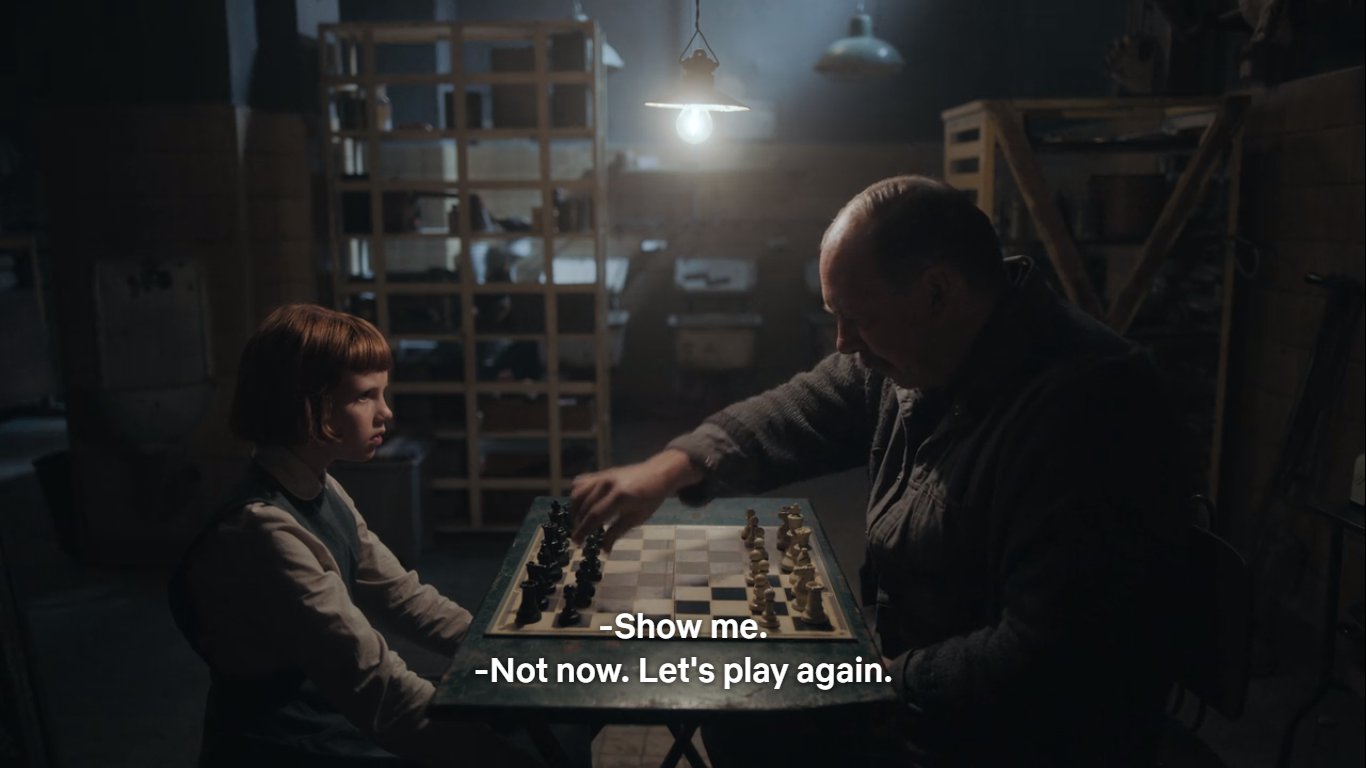
One is almost led to believe he doesn’t care for her, until he finally admits to Beth, that she is ‘astounding’ while lending her a book to better help her with the game.
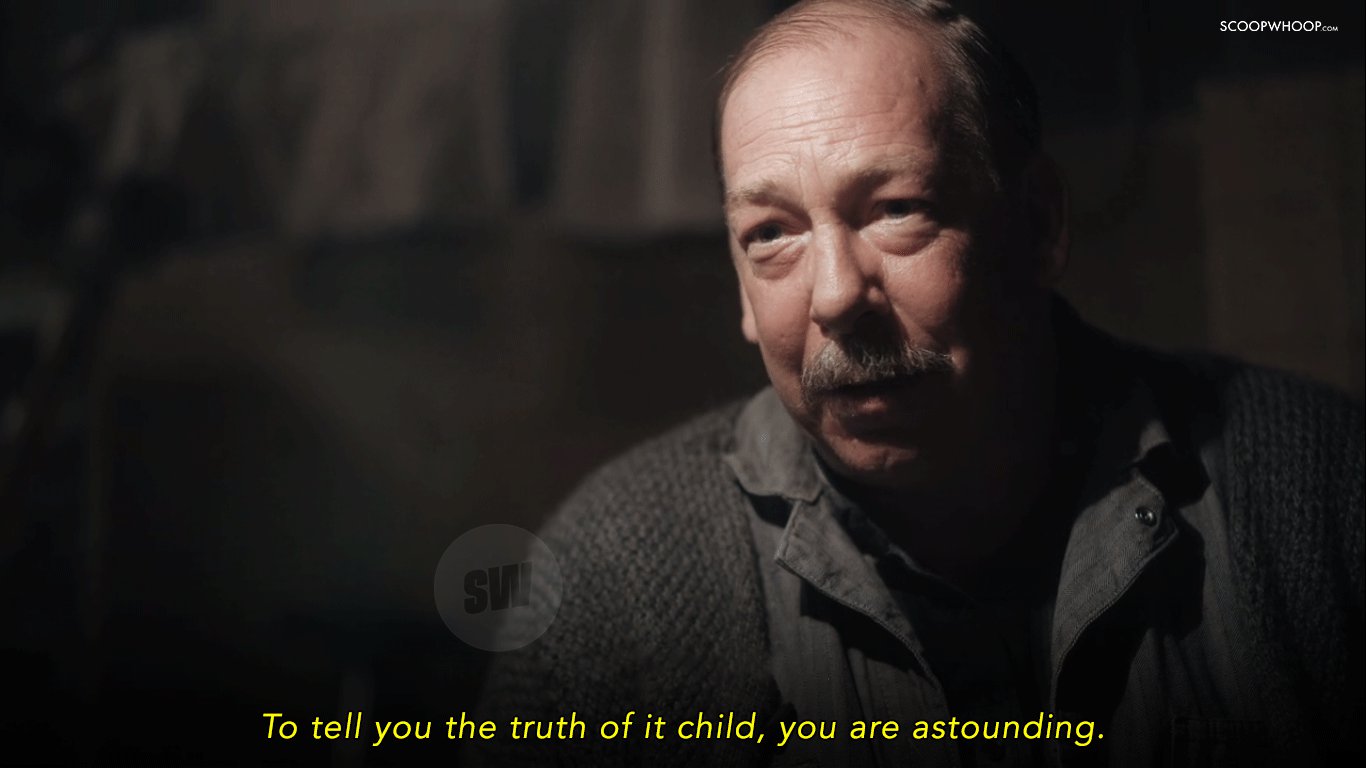
It’s not just a moment of validation for Beth, but also an indication of her talent. And later, Mr. Shaibel is the one who helps Beth enter her first informal, and formal, chess competition.
2. When Beth, at the age of 9, displays her chess skills by beating high-school boys at simultaneous chess.
Mr. Shaibel introduces Beth to Mr. Ganz, a local high-school teacher who runs the school’s Chess Club. Impressed by her skills, Mr. Ganz invites her to play simultaneous chess against high-school boys. While the boys start the game with a look of disdain and arrogance, they all end the game humbled by being defeated, that too in a short span of time, by a nine-year-old.
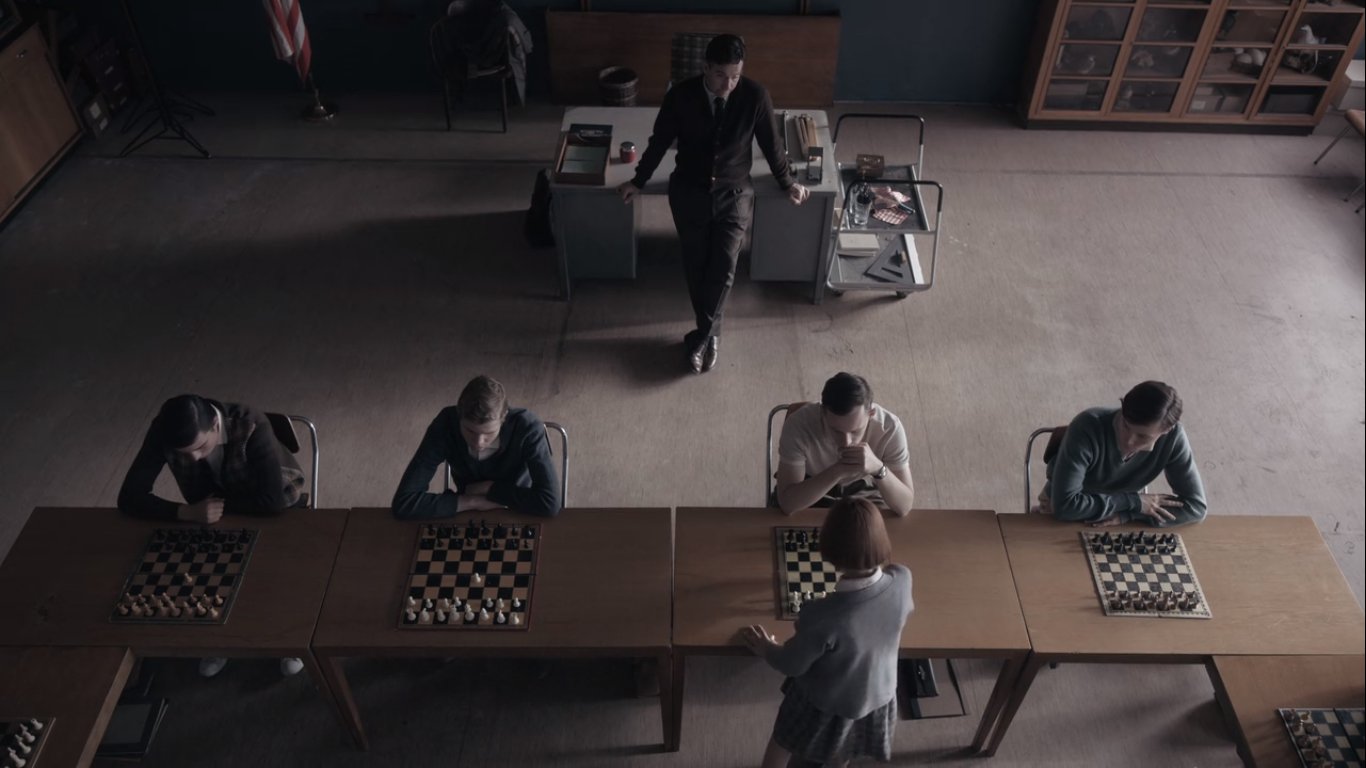
Not only does this scene brilliantly display the skewed gender dynamics in chess that, surprisingly, exist to date. But it also showcases how Beth, shown to be a reserved child with far too much control over her emotions than expected, experiences her first rush of emotions after winning.
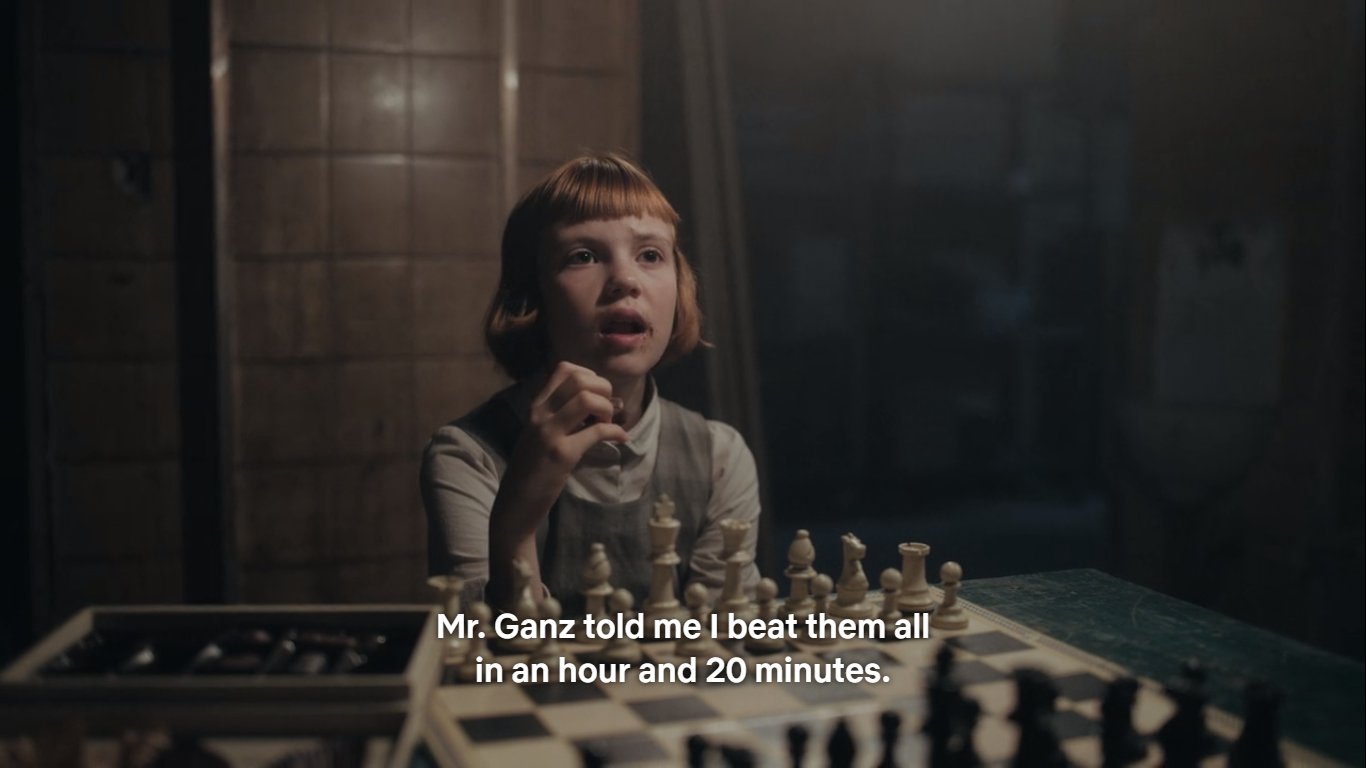
3. When Beth apologizes to the only friend she had in the orphanage, Jolene, for being adopted before her.
Beth and Jolene become one of the oldest children at the orphanage because they do not get adopted as kids, and there are few, if any, couples who want to adopt older kids. However, in an unexpected turn of events, Beth gets adopted by a couple looking to become parents to an older child.
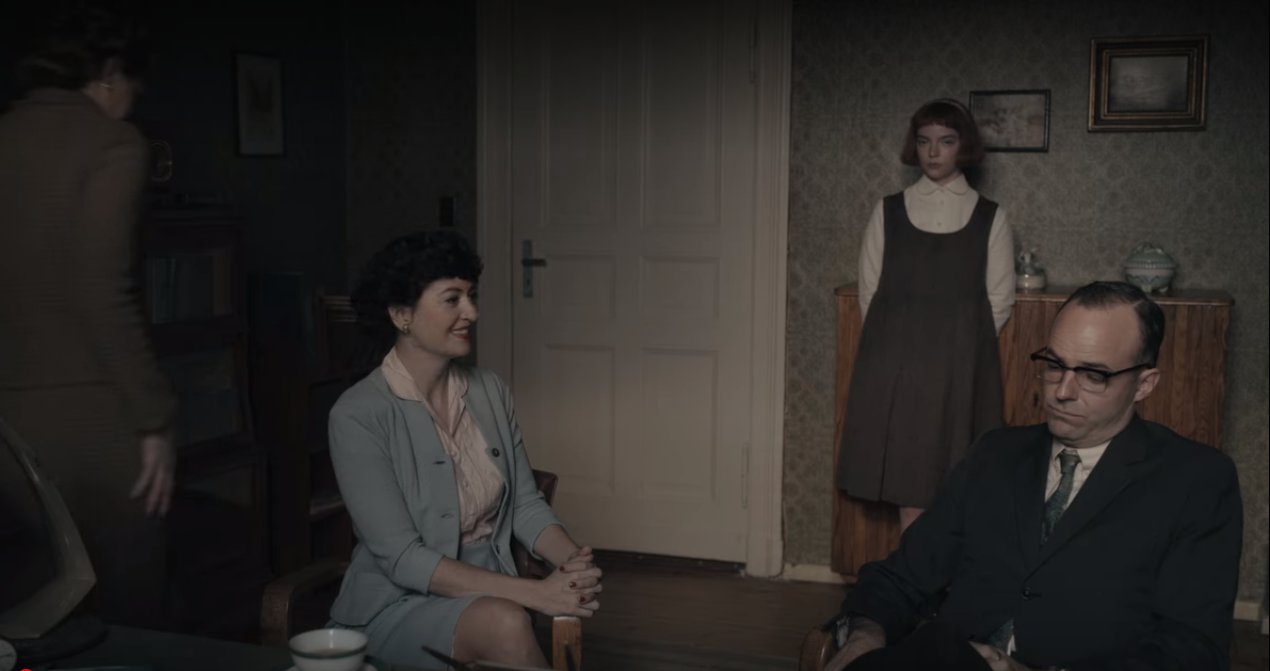
As she gets ready to leave, she bids a somber goodbye to Jolene, who is not only Beth’s only friend, but also remains the oldest child to not have been adopted, possibly because she is Black.
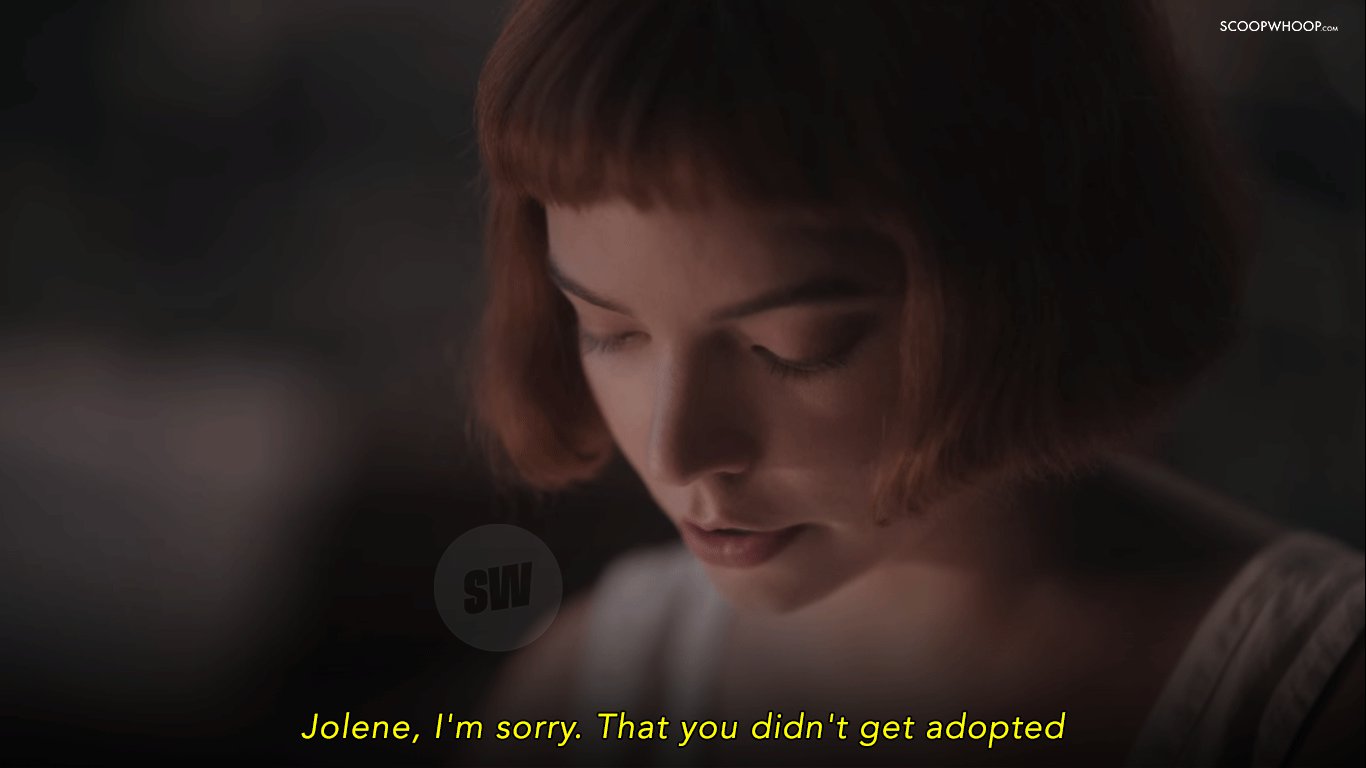
4. When Mr. Shaibel sends Beth money to help her enter her first chess tournament.
Beth’s adopted mother can not give her the $5 participation fee for entering a chess tournament and shuts down Beth’s request to get a job (with a statement that is a stark reminder of the time the show is set in). Consequently, Beth writers to Mr. Shaibel for help, who responds to her letter by loaning her the amount, and inadvertently launching her chess career.
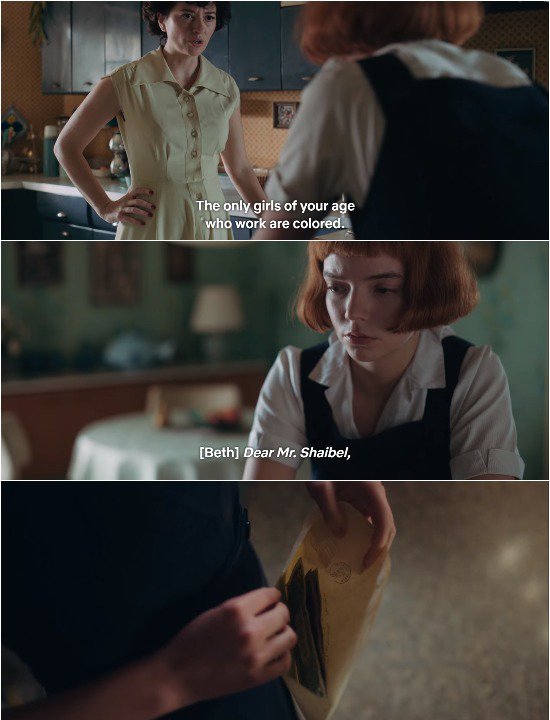
5. When Beth begins menstruating for the first time and is helped by a former competitor.
It’s during her first-ever chess tournament that Beth begins menstruating. Shocked and ill-equipped to handle her periods, she rushes to the bathroom. That’s when one of her former competitors, who wanted to congratulate her on her success at the tournament, also offers to help her.
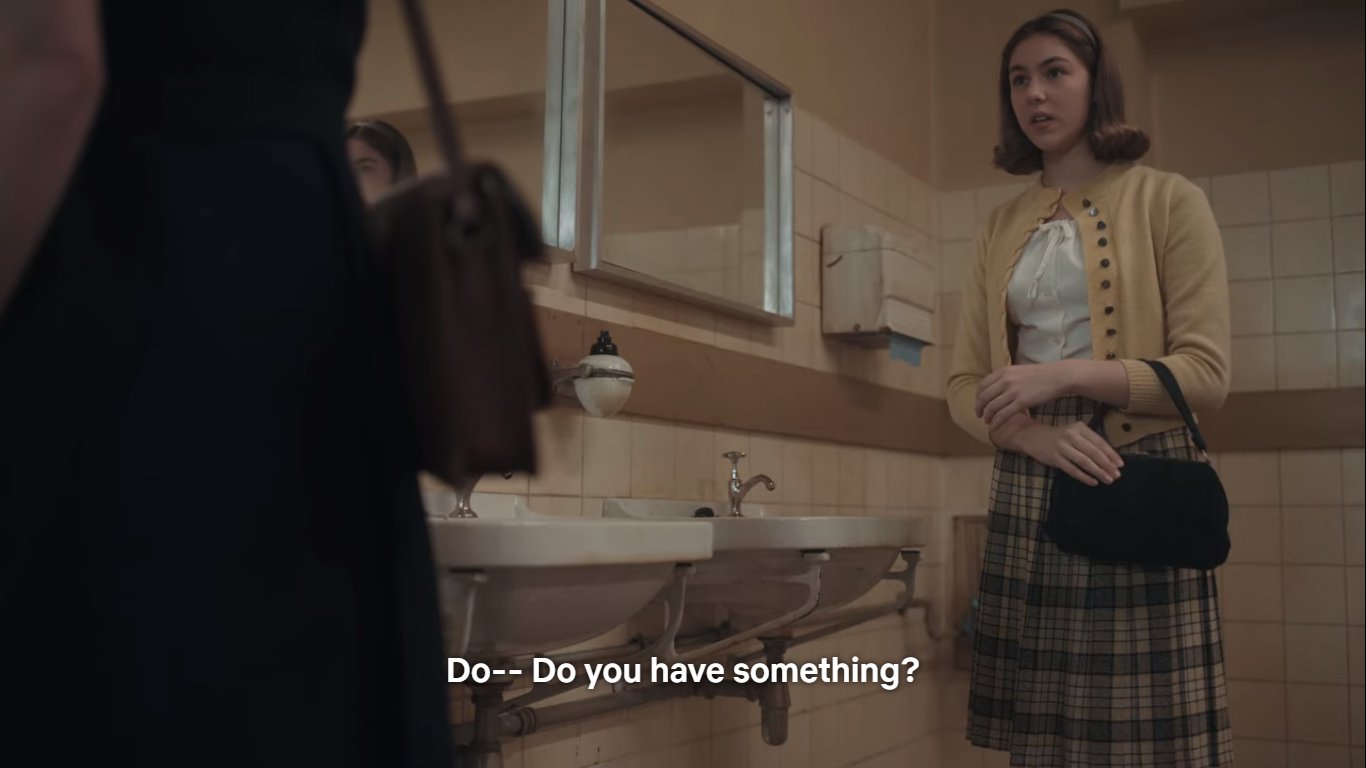
From lending her a pad to sharing her own experience of menstruation, Anette Packer becomes an unexpected source of support for Beth. It’s easily one of the most relatable and honest moments from the show.
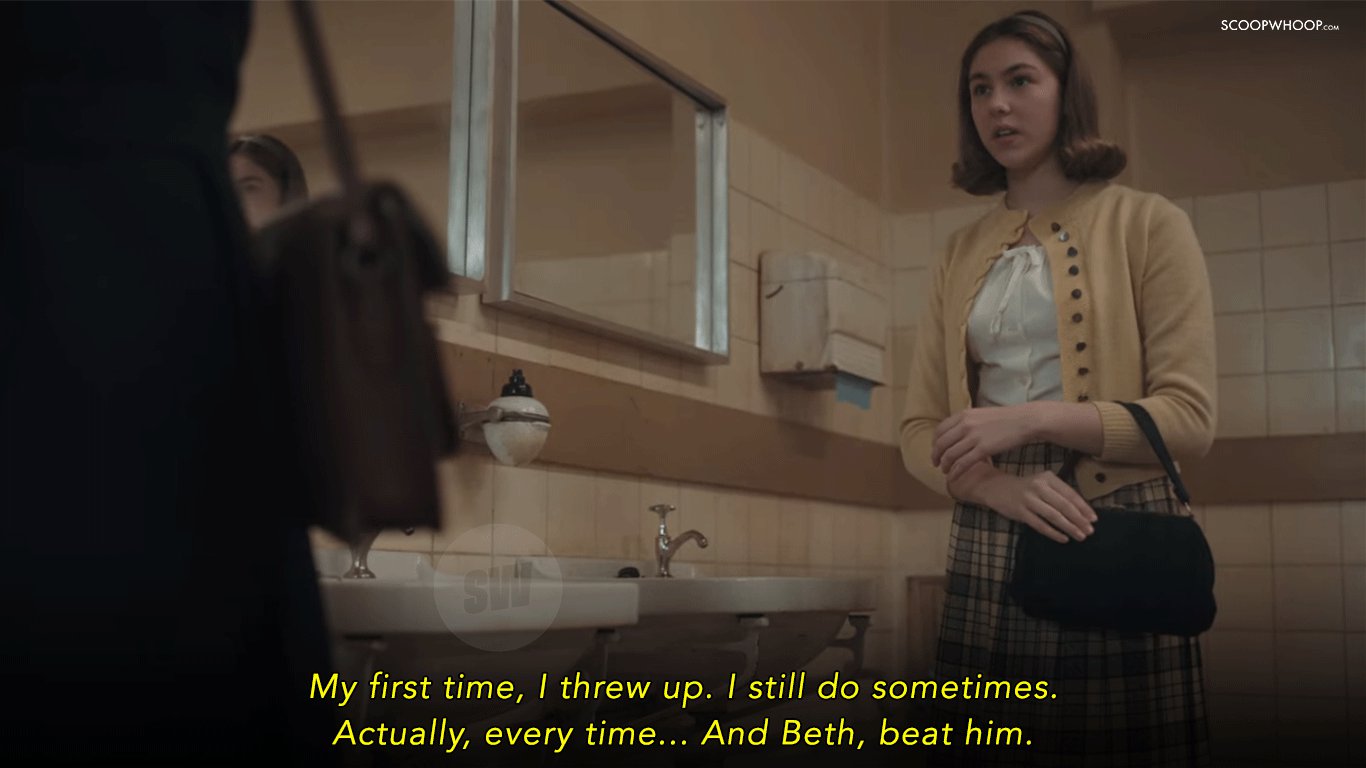
6. When Beth and Mrs. Wheatley agree to become each other’s companion, rather than depend on a man for survival.
When Beth gets to know that Mr. Wheatley, her adopted father, has left her and his wife, she is faced with the prospect of going back to the orphanage. At that moment, both Beth and Mrs. Wheatley, instantly come to the decision to become each other’s companion, and help each other, rather than depend on anyone.
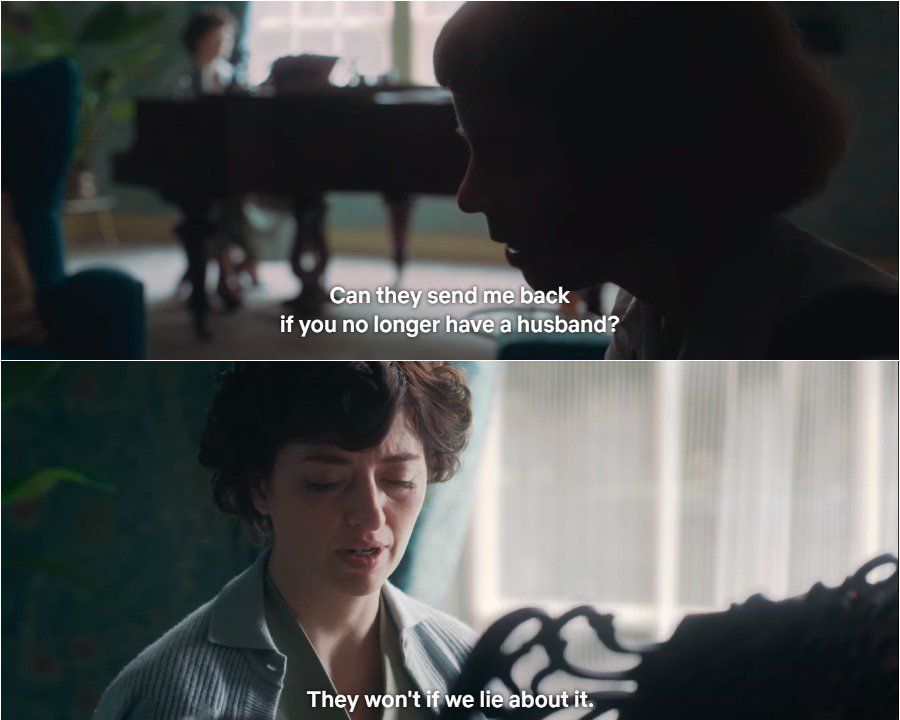
7. When Beth is interviewed for becoming the state champion and an article is published on her achievement, she has a very astute observation about how society views her first as a girl, and then, as a phenomenal chess player.
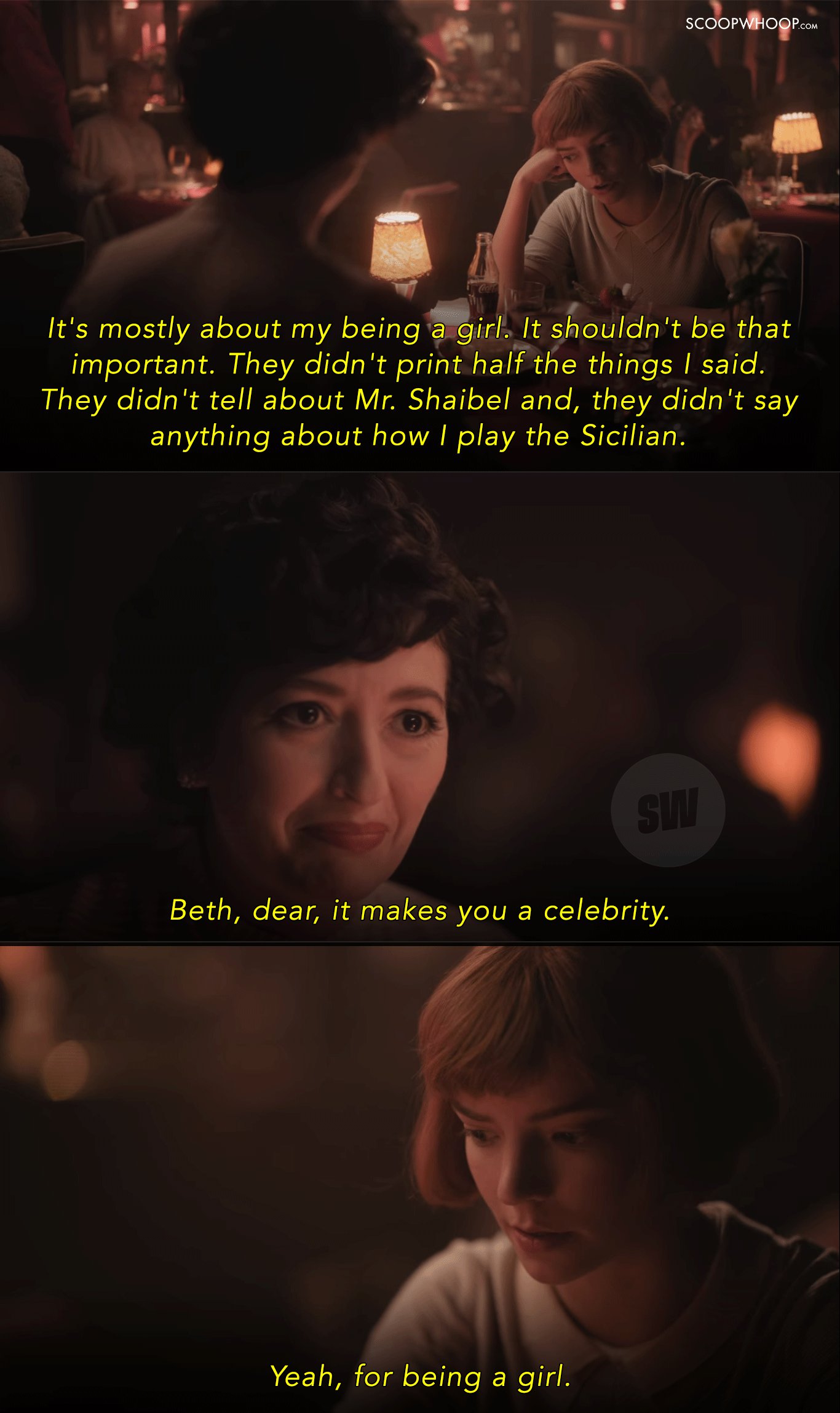
This scene was a brilliant reminder of why, it’s important to recognize and celebrate any celebrity, across any field, for their talent and not for their gender.
8. When, after losing a game to world champion Borgov, Beth returns to the hotel room, only to realize her mother has passed away due to hepatitis.
Beth’s adoptive mother was her longest companion, and in a way, her only family. And the shock of losing her mother so suddenly is when Beth, as an adult, first comes face-to-face with profound grief.
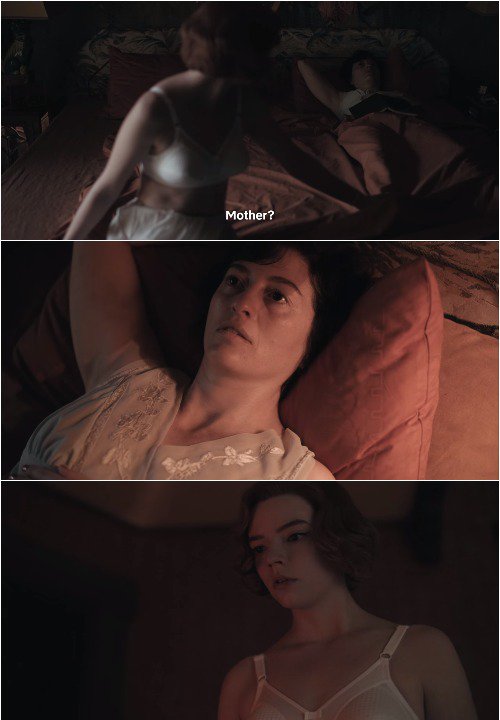
9. When Beth gets back at Benny for defeating her at speed chess when the two first competed years ago.
When Beth and Benny first compete, he defeats her three times in a row at speed chess – something Beth has limited experience in. Later, when Beth trains with Benny for her match against Borgov, she challenges him, and his two friends, to simultaneous speed chess and beats them all, three times in a row.
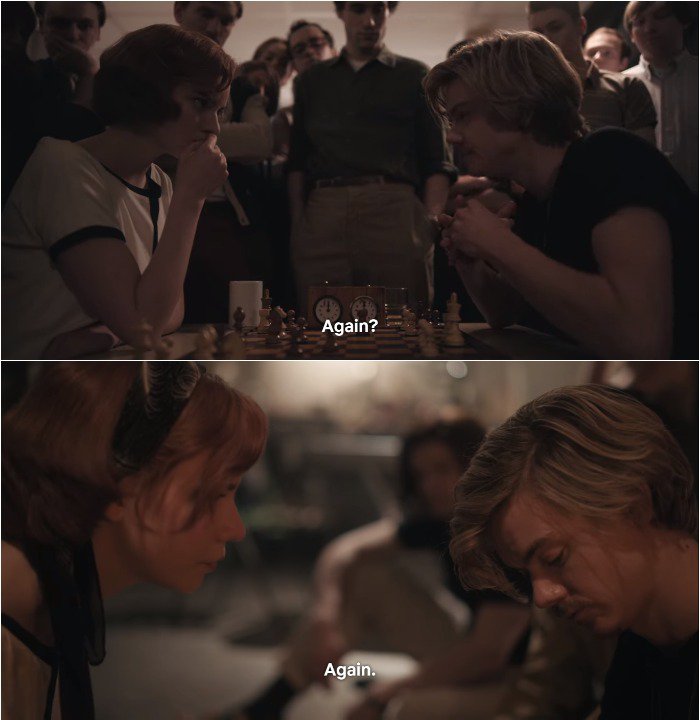
10. When Beth spirals out of control, after losing to Borgov a second time in Paris.
Initially, the long-term effects of substance abuse on Beth are not entirely obvious, but her dependency on alcohol and drugs continues to increase, even as friends caution her. However, it’s after losing her second match to world champion Borgov, that she spirals completely out of control, losing herself to a never-ending consumption of alcohol and pills.
Years of suppressing her grief and trauma, over the loss of her real and adoptive mother, finally take a toll on her. It’s a hard-hitting depiction of the effects of substance abuse, that can affect anyone, even a genius.
11. When Beth realizes that Mr. Shaibel was not just her first teacher, but also, her life-long supporter.
As adults, Jolene and Beth reconnect, when the two together head back to their orphanage for Mr. Shaiber’s funeral. It’s there that Beth comes across a wall in the basement–where Mr. Shaibel stayed for the most part and taught her chess–which is made up entirely of newspaper clippings and magazine articles about Beth.
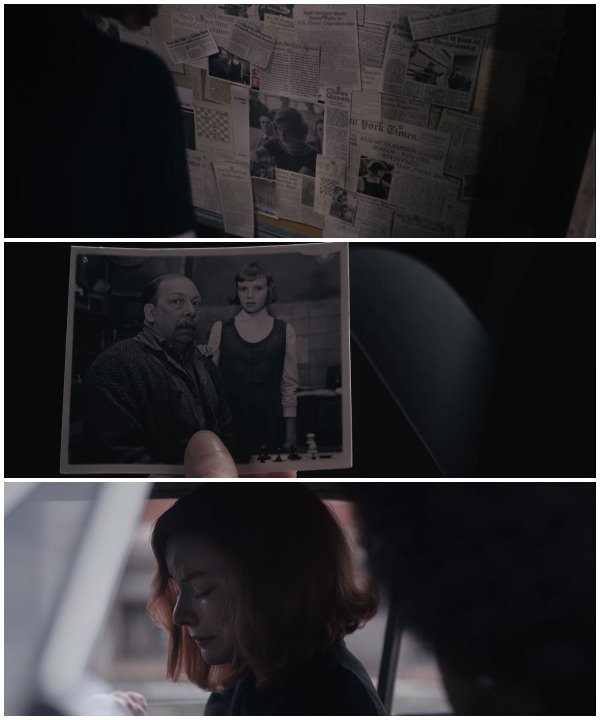
That’s when Beth realizes, that while she believed herself to be alone all these years, Mr. Shaibel, never stopped rooting for her.
12. When Jolene helps Beth get back to her feet, reminding her that she isn’t her ‘guardian angel’, but rather, her family.
Beth refuses to pander to regressive Christian beliefs and thus, loses her sponsorship for the World Championship. Short on cash to travel to Russia to compete in the championship, she almost gives up on the idea of competing, when Jolene offers to help her because they are ‘family’
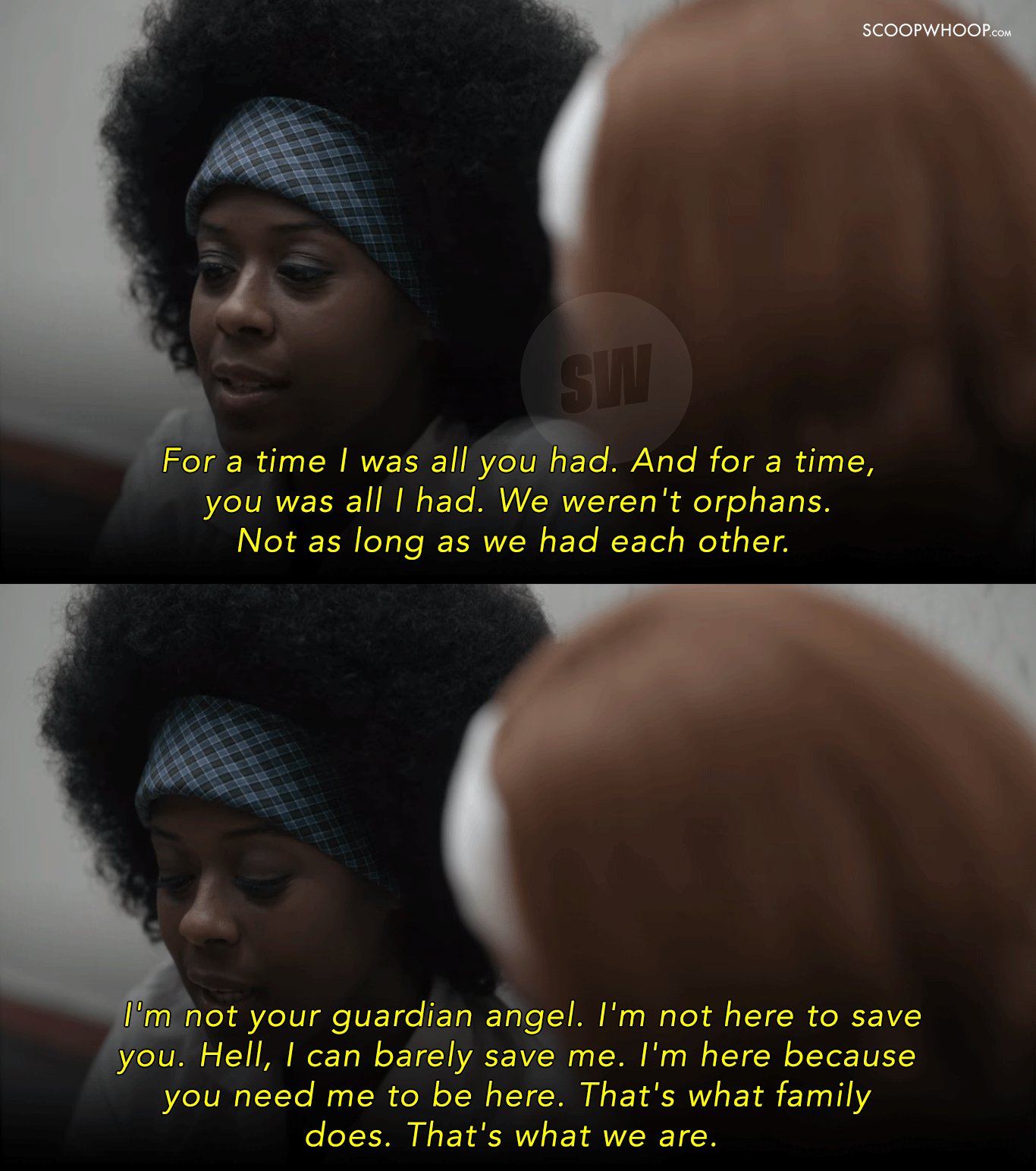
13. When finally, Beth wins the final match against Borgov, thanks to help from friends and her own natural skill and talent, not bolstered by drugs.
Over her years as a renowned chess player, Beth gathers a group of small, loyal friends, some of whom she even defeated. Right before her final match, when she believes the lack of pills will cause her to lose, her friends come together to help.
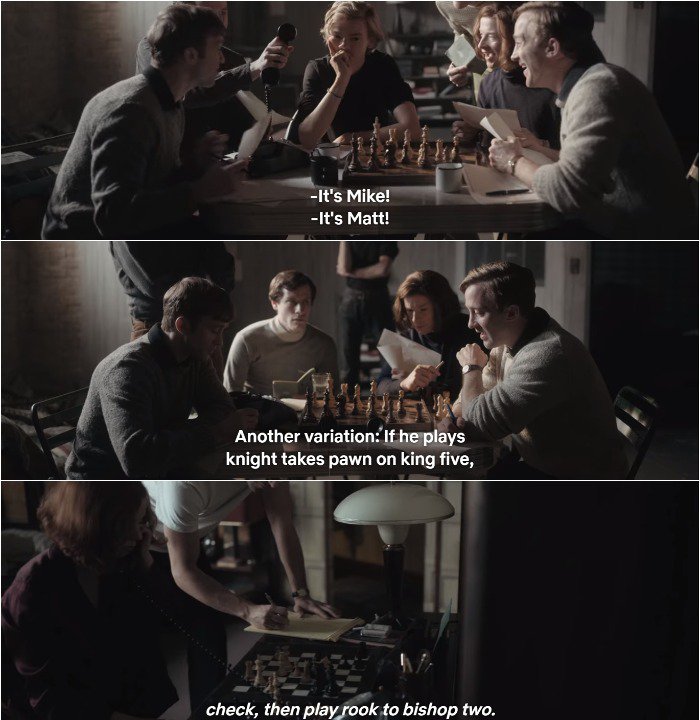
Together, they devise possible moves and strategies, ultimately reminding her that she never actually needed to depend on pills to succeed.
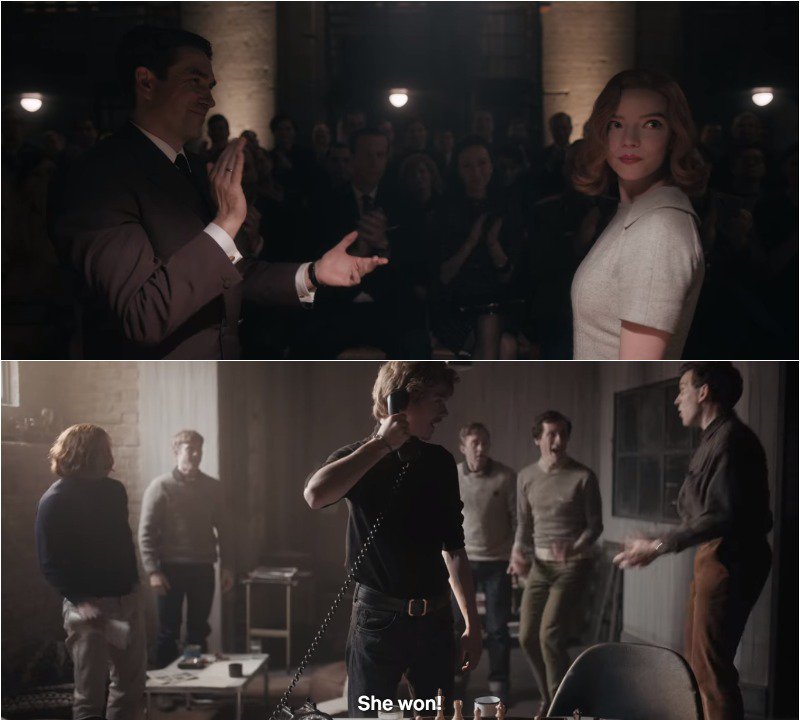
To anyone who ever thought of chess as boring, this show is the perfect response.
All images from Netflix.

















